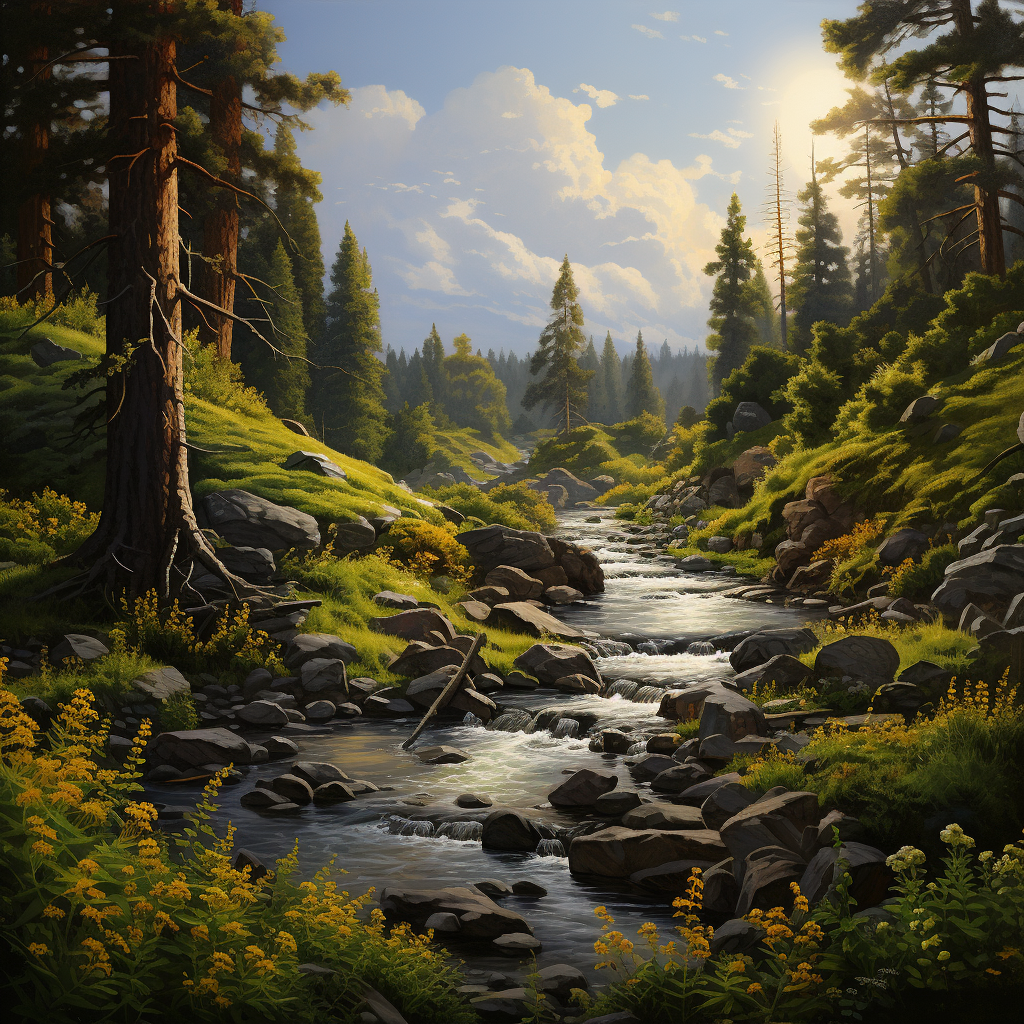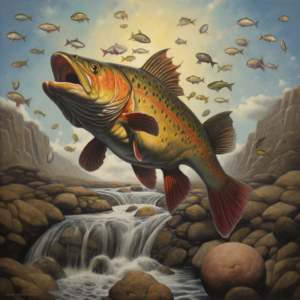Welcome to the great outdoors! Nothing beats the feeling of camping under the stars and exploring nature’s bounty. Whether you’re a seasoned camper or a newbie, you need the right camping gear and equipment to make the most of your camping trip. In this section, we’ll go over the essentials of camping, from the perfect camping gear to the right camping equipment. So, let’s get ready to tackle the wilderness in style!
When it comes to camping, having the right gear is vital. Without proper gear, you may face a less-than-ideal experience. From tents and sleeping bags to cooking utensils and lighting options, we’ll cover everything you need to know to ensure a successful camping trip. Ready to learn how to choose the right camping gear for your outdoor expedition? Let’s get started!
Don’t forget to pack all the camping essentials to make sure you’re prepared for any situation. From a first aid kit to extra batteries, you’ll want to check off everything on your camping checklist before setting off on your adventure. With our camping guide, you’ll be ready to embrace nature and make unforgettable memories.
So, keep reading and get ready to gear up for the ultimate camping experience. Let’s dive into the world of camping gear and equipment and prepare to embark on an epic outdoor adventure!
Choosing the Right Camping Gear for Your Outdoor Expedition
Tents and Sleeping Bags
Cooking Utensils and Food Storage
Lighting Options
Camping Chairs and Tables
Other Essentials
Other camping essentials include a first aid kit, insect repellent, sunscreen, and a multi-tool. It’s also a good idea to pack extra clothes, rain gear, and footwear suitable for your chosen camping location.
Investing in good-quality camping gear and equipment will ensure your outdoor adventure is comfortable, safe, and enjoyable. Don’t forget to check that you have all the essentials on your camping checklist before heading out on your trip!
Top Camping Tips for a Memorable Outdoor Experience
Make a Camping Checklist
Pack Smart and Light
Choose the Right Campsite
Practice Campsite Etiquette
Stay Safe in the Great Outdoors
Leave No Trace Behind
Protect nature by leaving no trace behind. Pack out all trash and waste, and avoid disturbing natural habitats. Use designated fire pits and follow all fire regulations. Respect wildlife and avoid feeding them. By practicing environmental responsibility, you can ensure the beauty of nature remains for future generations to enjoy.
Follow these camping tips to ensure a memorable outdoor experience. From packing smart to practicing campsite etiquette, you’ll be ready for any camping scenario.
Uncovering the Best Camping Destinations in the United States
Looking for the ultimate camping adventure? The United States is home to some of the most magnificent camping destinations in the world. From national parks and forests to wilderness areas and scenic coastlines, there’s no shortage of breathtaking landscapes to explore.
“The clearest way into the Universe is through a forest wilderness.” – John Muir
If you’re seeking a rugged outdoor experience, head to Alaska, where you’ll have the chance to explore Denali National Park, home to North America’s tallest peak. If you’re in search of stunning desert scenery, look no further than Joshua Tree National Park in California, where you can enjoy hiking, stargazing, and rock climbing.
For those who prefer a coastal setting, check out Acadia National Park in Maine, where you can camp in the shadow of towering granite cliffs and enjoy panoramic ocean views. And if you’re looking for a unique camping experience, consider camping on the beach at Florida’s Cumberland Island National Seashore.
Outdoor enthusiasts can also enjoy a range of camping activities, including hiking, fishing, kayaking, and wildlife watching. Whether you’re a seasoned camper or a first-timer, the possibilities for outdoor adventure are endless.
– Denali National Park, Alaska
– Joshua Tree National Park, California
– Acadia National Park, Maine
– Cumberland Island National Seashore, Florida
So pack your camping gear, grab your sense of adventure, and head out to discover the unparalleled beauty of America’s camping destinations. Your next unforgettable outdoor experience is waiting!
Insider Camping Hacks to Enhance Your Outdoor Skills
1. Start a Fire with Potato Chips
2. Repurpose a Shower Cap
3. Make Your Own Portable Lantern
4. Use a Tic Tac Container for Spices
5. Create a DIY Camping Shower
With just a few items, you can create your own camping shower. Hang a water bladder or plastic bag filled with water from a tree and use a shower head attachment to create a refreshing camping shower experience.
These insider camping hacks will enhance your outdoor skills and make your camping experience more enjoyable. Remember, sometimes the simplest solutions are the most effective!
Embracing Nature: Camping and Environmental Responsibility
Tread Lightly
Be mindful of your surroundings and avoid damaging plants, trees, and wildlife. Keep your campsite clean and don’t leave any trash or food scraps behind. Use eco-friendly camping products whenever possible, such as biodegradable toilet paper and soap.
Respect Local Wildlife
Make sure to store your food and trash properly, as this can attract unwanted visitors to your campsite. Use bear-resistant containers or hang your food high above the ground in a bear bag to keep it out of reach.
Be Mindful of Fires
Make sure to collect firewood from dead and downed trees, rather than cutting down live trees or shrubs. Never leave a fire unattended and make sure to fully extinguish it before leaving your campsite.
Leave No Trace
By following these simple tips, you can enjoy all the benefits of camping while minimizing your impact on the environment. Remember to be mindful of your surroundings and leave no trace behind. With a little effort, you can help preserve our natural resources for generations to come.
Conclusion
FAQ
Q: Can I rent camping gear instead of buying it?
A: Yes, many outdoor gear rental companies offer a wide range of camping gear for rent, including tents, sleeping bags, and cooking equipment. This can be a cost-effective option, especially if you’re going camping infrequently or don’t have the space to store your own gear.
Q: How do I choose the right tent size for my camping trip?
A: When selecting a tent, consider the number of people who will be sleeping in it and the amount of gear you’ll need to store inside. Most tents are labeled with their capacity, such as “2-person” or “4-person.” It’s also a good idea to choose a slightly larger tent than you think you’ll need to allow for extra space and comfort.
Q: What kind of camping stove should I bring?
A: The type of camping stove you choose depends on your cooking needs and preferences. There are various options available, including propane stoves, liquid fuel stoves, and compact backpacking stoves. Consider factors such as size, weight, fuel efficiency, and ease of use when making your decision.
Q: Are campfires allowed at all campsites?
A: Campfire regulations vary depending on the campsite and local fire restrictions. Before starting a campfire, always check with the campground or park authorities regarding any fire bans or restrictions in place. If campfires are allowed, make sure to follow proper fire safety guidelines and never leave a fire unattended.
Q: How do I stay safe from wildlife while camping?
A: To minimize wildlife encounters, store your food securely in bear-resistant containers or hang it from a tree away from your campsite. Avoid keeping food or scented items in the tent, as this can attract animals. It’s also important to research and understand the wildlife in the area where you’ll be camping and take necessary precautions, such as using bear spray in bear country.
Q: What should I do if it rains during my camping trip?
A: If rain is in the forecast, make sure to pack waterproof gear, including a rain jacket, waterproof pants, and a tarp to cover your tent. It’s also a good idea to bring extra dry clothes and footwear. During rainy periods, try to set up your campsite on higher ground and avoid low-lying areas that may flood.




